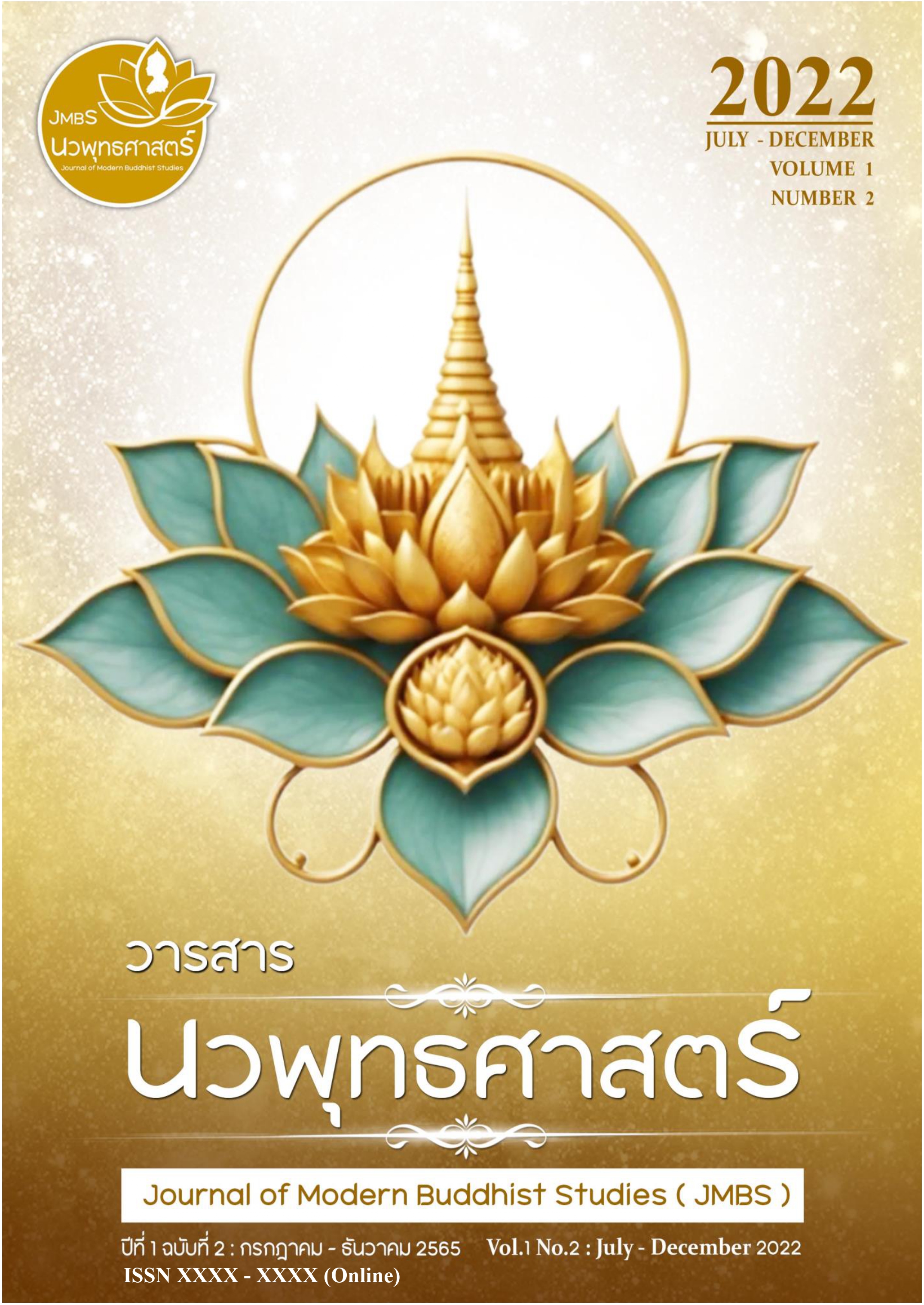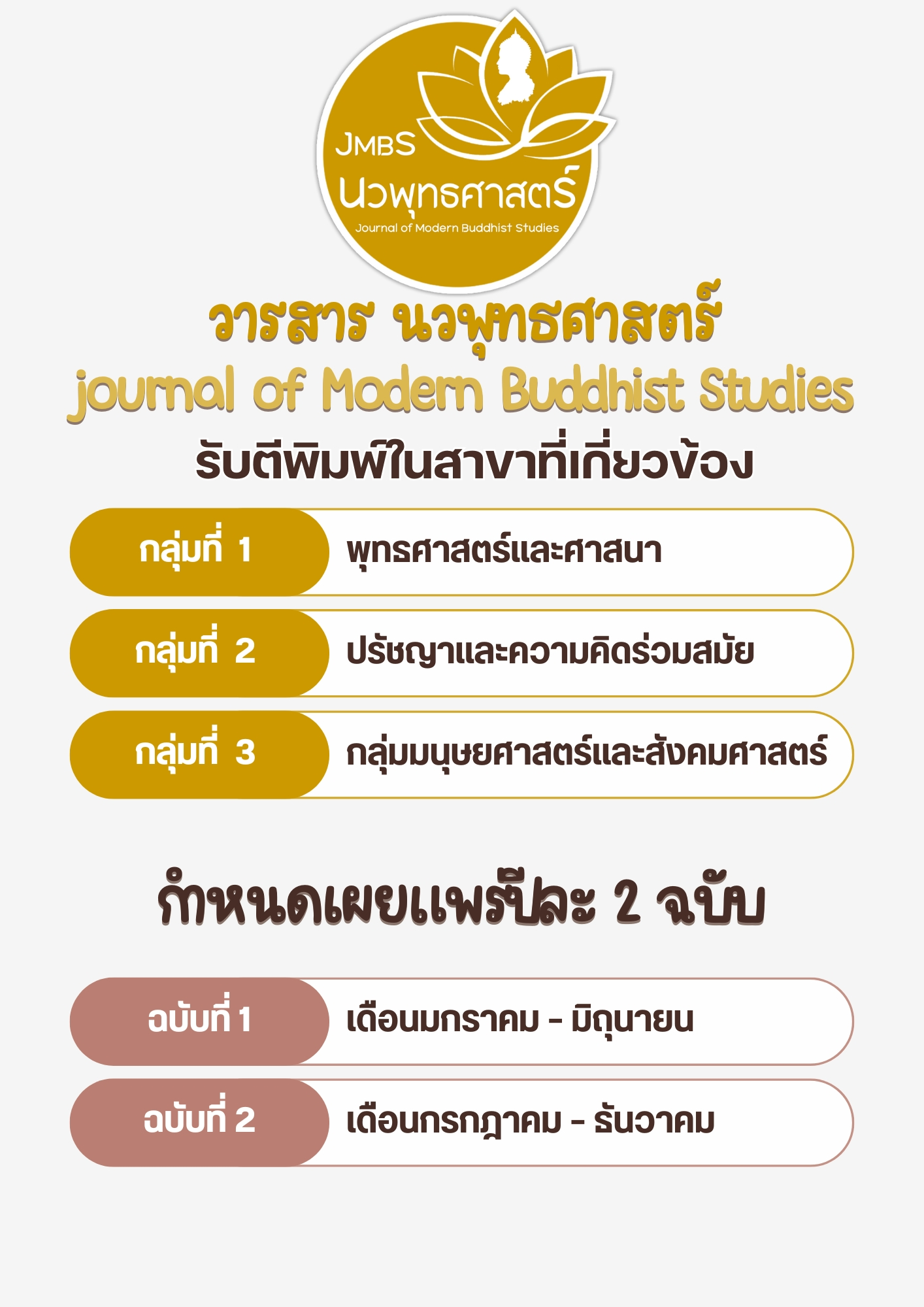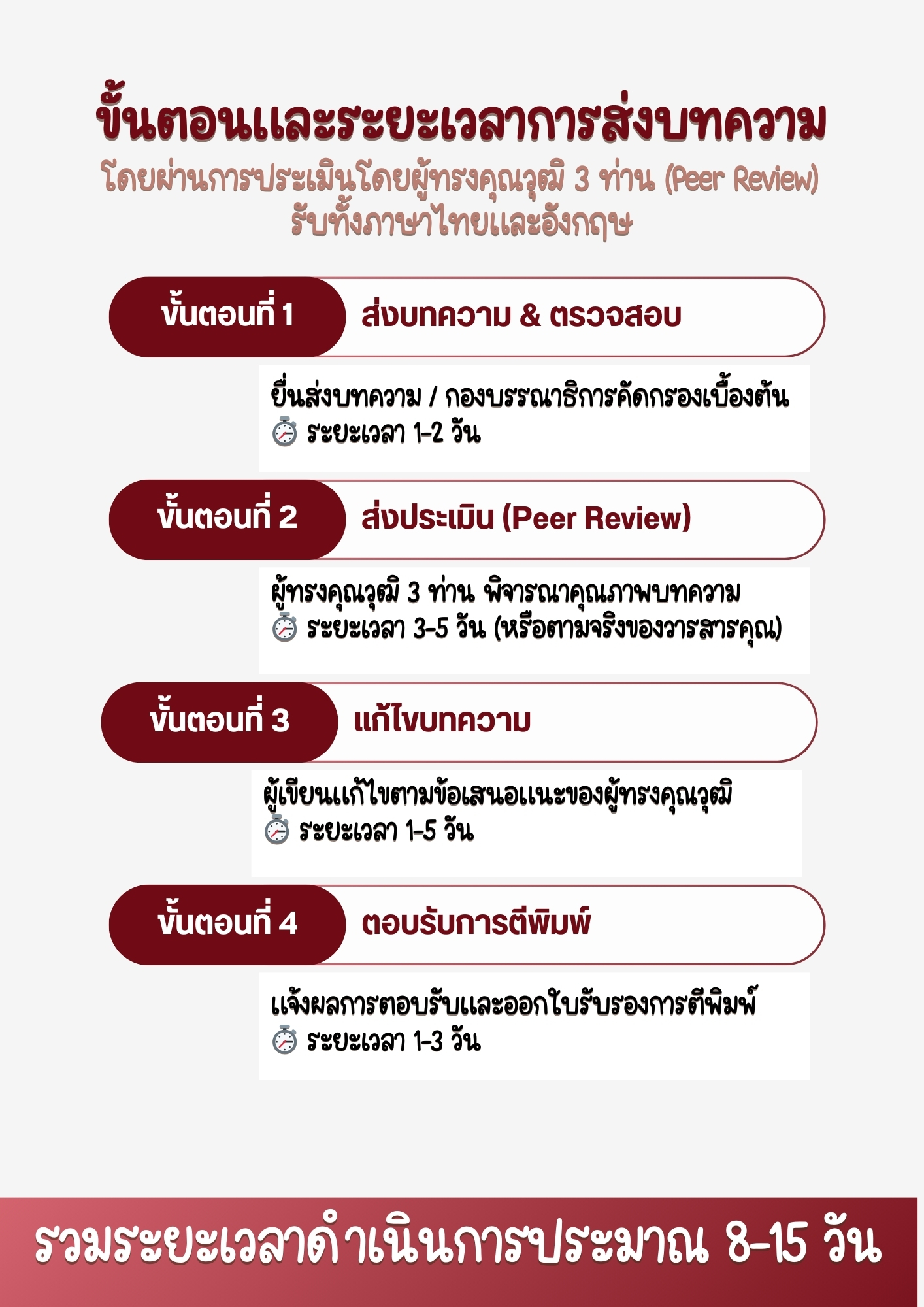THE ROLE OF THE SEVEN ADHIKARANA SAMATHA IN THE ADMINISTRATION AND RESOLUTION OF CONFLICTS IN THE SANGHA
Keywords:
Seven Adhikarana Samatha, Conflict Management in the Sangha, Seven Adhikarana Samatha and ConflictAbstract
This academic article aims to study the role and importance of the Seven Adhikarana Samatha in the management and resolution of conflicts in the Sangha. They are important principles in Buddhism in managing disputes with compassion and justice, adhering to the principles of Dhamma and Vinaya to create peace among the Sangha. The use of Dhamma principles helps reduce conflicts from different opinions and promotes unity among the Sangha. The Seven Adhikarana Samatha consist of Sammukha Vinaya, resolving conflicts in a public meeting by openly negotiating and making decisions together; Sati Vinaya, using mindfulness and wisdom to consider and decide on conflicts carefully; Amula Vinaya, checking the accuracy of information and evidence before making decisions to create legitimacy; Patiyaka Karana, admitting faults and asking for forgiveness to create harmony and reconciliation; Yebhuyyasika Vinaya, making decisions by majority vote when there is no clear conclusion; Tinavatthārakka, overlooking minor mistakes to maintain peace and unity; Tassapāpiyasika, punishing wrongdoers without admitting faults to maintain peace and order. Results of the study: Applying the Seven Adhikarana Samatha Principles to Manage Conflicts in the Sangha Reduce conflicts that arise among the group, make the administration of the Sangha organization more orderly and fair, promote the Sangha to be able to operate in accordance with the Dharma and Vinaya, and help restore the villagers' confidence and faith in Buddhism. The 7 Adhikarana Samatha are important guidelines for managing conflicts and creating peace in the Sangha. Applying the principles of Dhamma to the administration and problem-solving of the Sangha organization appropriately strengthens unity, legitimacy, and good administration.
References
ชาญชัย อาจินสมาจาร (2549). “ความขัดแย้งในองค์การ”. เทศาภิบาล. ปีที่ 101 ฉบับที่ 3 (มีนาคม).
บุญลือ วันทายนต์ (2539). สังคมวิทยาศาสนา. พิมพ์ครั้งที่ 7. กรุงเทพมหานคร: สำนักพิมพ์มหาวิทยาลัยรามคำแหง.
ปรียาพร วงศ์อนุตรโรจน์ (2553). จิตวิทยาการบริหารงานบุคคล. กรุงเทพมหานคร : ศูนย์สื่อเสริมกรุงเทพมหานคร.
พระเทพเวที (2532). ทางออกจากระบบเศรษฐกิจที่ครอบงำสังคมไทย. กรุงเทพมหานคร:
มูลนิธิพุทธรรม.
พระธรรมปิฎก (2545). พจนานุกรมพุทธศาสตร์ ฉบับประมวลศัพท์. กรุงเทพมหานคร : มหาจุฬาลงกรณราชวิทยาลัย.
พระไพศาล วิสาโล (2553). “การไกล่เกลี่ยแบบพุทธ”, ใน หลักศาสนากับการไกล่เกลี่ยข้อพิพาท, รวบรวมจัดพิมพ์โดย ศูนย์วิทยาการระงับข้อพิพาททางเลือก สำนักระงับข้อพิพาท สำนักงานศาลยุติธรรม. กรุงเทพมหานคร: บริษัท ธนาเพลส จำกัด.
พระมหาหรรษา ธมฺมหาโส (2554). พุทธสันติวิธี การบูรณาการหลักการและเครื่องมือจัดการความขัดแย้ง. กรุงเทพมหานคร: บริษัท 21 เซ็นจูรี่ จำกัด.
พระยุทธนา รมณียธมฺโม (2547). “การศึกษาเชิงวิเคราะห์การจัดองค์กรคณะสงฆ์ในสมัยพระพุทธกาล”. วิทยานิพนธ์พุทธศาสตรมหาบัณฑิต. บัณฑิตวิทยาลัย: มหาวิทยาลัยมหาจุฬาลงกรณราชวิทยาลัย.
รังสรรค์ ประเสริฐศรี (2548). พฤติกรรมองค์กร. กรุงเทพมหานคร: เพียร์สัน เอ็ดคูเคชั่น อินไชน่า.
ราชบัณฑิตยสถาน (2546). พจนานุกรมฉบับราชบัณฑิตยสถาน พ.ศ.2542. กรุงเทพมหานคร :
บริษัท นานมีบุ๊คส์พับลิเคชั่นส์ จำกัด.
วันชัย วัฒนศัพท์ (2547). ความขัดแย้ง: หลักการและเครื่องมือแก้ปัญหา. พิมพ์ครั้งที่ 2. กรุงเทพมหานคร :โรงพิมพ์มหาจุฬาลงกรณ์มหาวิทยาลัย.
สมเด็จพระมหาสมณเจ้ากรมพระยาวชิรญาณวโรรส (2535). พุทธศาสนสุภาษิต เล่ม 1. พิมพ์ครั้งที่ 2. กรุงเทพมหานคร: โรงพิมพ์เลี่ยงเชียง.
สมผล อิ่นคำ (2540). “การศึกษาวิเคราะห์วิธีระงับอธิกรณ์ตามพระไตรปิฎก: ศึกษาตัวอย่างจากพระนิกร ธมมฺวาที”. บัณฑิตวิทยาลัย : ศิลปศาสตรมหาบัณฑิต.
เสกโรจน์ ถ้วนถวิล (2541). สาเหตุและวิธีการบริหารความขัดแย้งของผู้บริหารโรงเรียนมัธยมศึกษา สังกัดกรมสามัญศึกษา จังหวัดพัทลุง. มหาวิทยาลัยศรีนครินทรวิโรฒ ประสานมิตร.
เสริมศักดิ์ วิศาลาภรณ์ (2534). ความขัดแย้ง: การบริหารเพื่อความสร้างสรรค์. กรุงเทพมหานคร: เลิฟแอนด์ลิพเพรส.
อธิเทพ ผาทา (2549). “การศึกษารูปแบบและกระบวนการแก้ปัญหาในพระพุทธศาสนาเถรวาท : ศึกษาเฉพาะกรณีอธิกรณสมถะ 7 และ กฎนิคหกรรมของมหาเถรสมาคมในพระราชบัญญัติคณะสงฆ์ พ.ศ. 2505แก้ไขเพิ่มเติม (ฉบับที่ 2) พ.ศ. 2535”. วิทยานิพนธ์พุทธศาสตรดุษฎีบัณฑิต. บัณฑิตวิทยาลัย : มหาวิทยาลัยมหาจุฬาลงกรณราชวิทยาลัย.

Downloads
Published
How to Cite
Issue
Section
License

This work is licensed under a Creative Commons Attribution-NonCommercial-NoDerivatives 4.0 International License.







